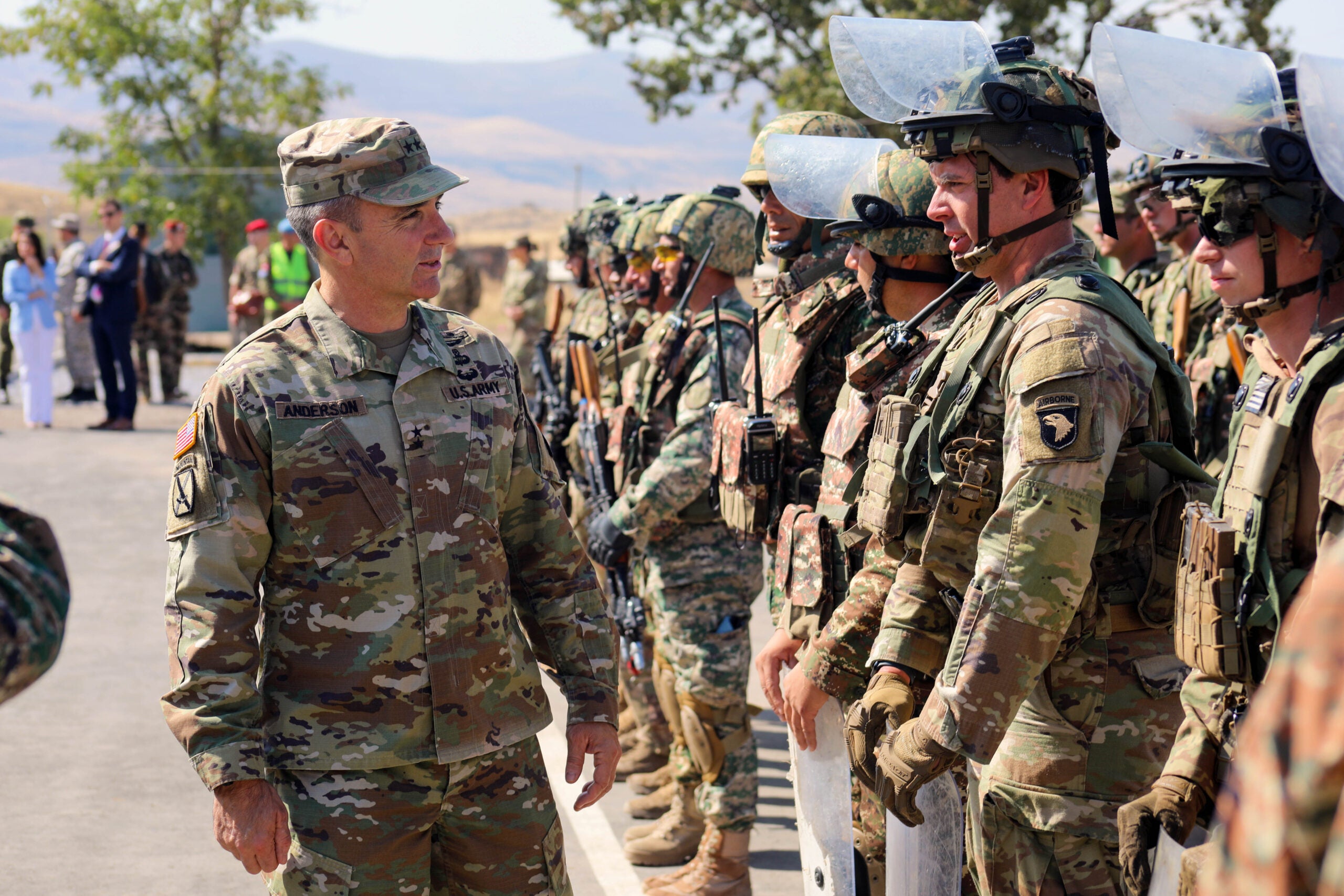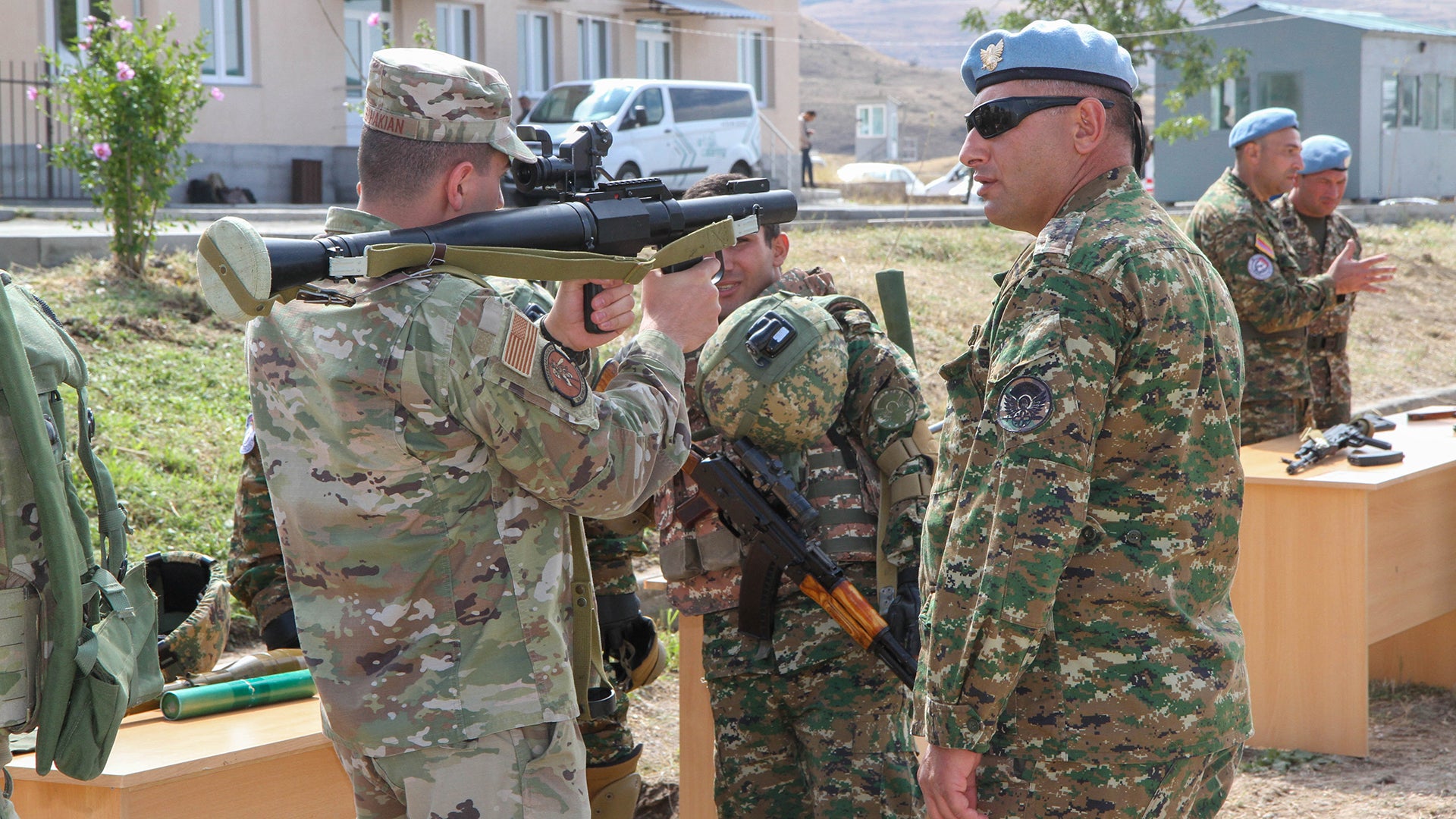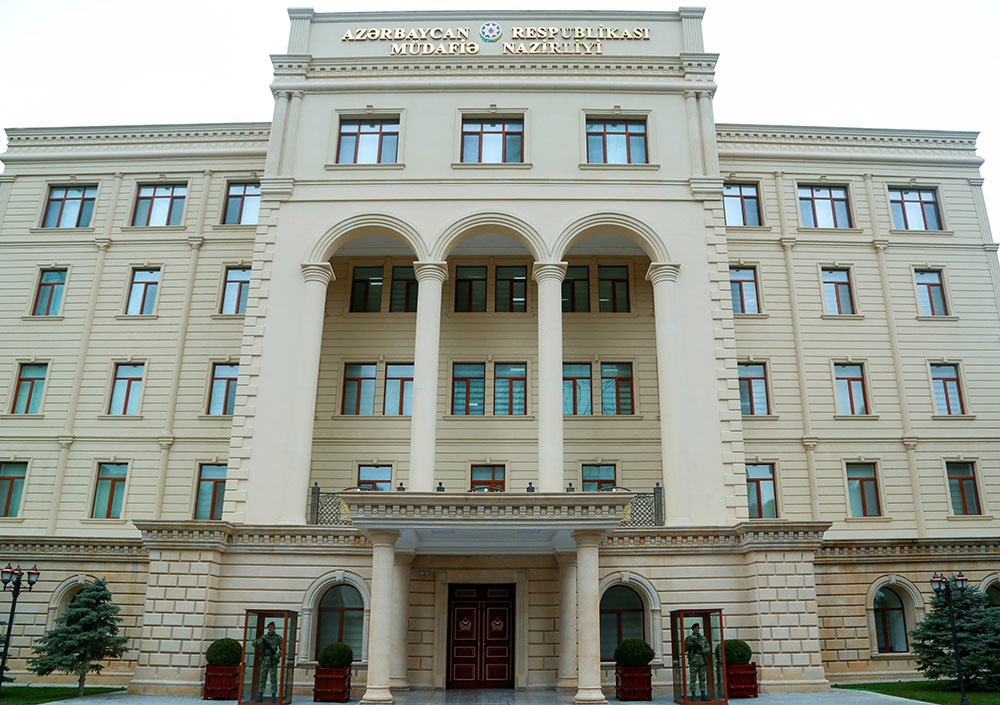The Kremlin’s need to justify the war grew to embrace the most radical voices, including those peddling Nazi creed, as its ideologues became hell-bent on normalising the aggression, Aleksandar Đokić writes.
The Kremlin and its agents have many explanations and justifications for the invasion of Ukraine.
 ADVERTISEMENT
ADVERTISEMENTThose depend on the target audience: when they address the far-left, they swear by anti-colonialism. When they talk to the far-right, they speak about “wokeism” and traditional values.
When they turn to Europeans, they claim the US is exploiting the continent and that Washington provoked the war. When they move to the Middle East, they speak about the invasion of Iraq and the “Western Crusades”.
When they look at Africa, they pretend that Russia did not colonise swaths of the Asian continent.
The list goes on.
The fact of the matter is the Kremlin is not driven by any official ideology. It adheres to no principles whatsoever, and it is more akin to a highwayman changing his garb at will if it means getting to the loot more easily.
Delusions of grandeur while slaughtering victims
Thus, the big question is: is it all for show? Are there absolutely no beliefs in the Kremlin’s decision-making circles, and are they then motivated exclusively by self-interest?
Or rather, did Russia’s Vladimir Putin start the invasion because he is a neocolonialist rebuilding the empire or because he is a corrupt autocrat who wants to prolong his stay in power either by a quick military victory or a never-ending war?
One of the answers certainly can be, “why not both?”
Corruption and imperialism can co-exist in the same person’s set of beliefs. After all, the said road bandit can also delusionally picture himself as a knight in shining armour while robbing and slaughtering his victims.
Putin can build his own castles in the sand and still promote the theory of the “degradation of the West” that’s been around for at least seventy years or so.
But, more important than its beliefs is how the Kremlin is using ideology in a fractured postmodern world to its advantage. And worryingly, Putin has increasingly allowed Nazism to seep in and take hold.
 ADVERTISEMENT
ADVERTISEMENTHow close are Russian far-right figures to true Nazism?
The Kremlin’s favourite argument for the Western audience, besides blaming the US for Russia’s invasion, revolves around the alleged “Ukrainian Nazis” that are pulling all the strings in Kyiv.
It’s not that Ukraine doesn’t have its share of far-right supporters. It’s the fact that the far right has a negligible influence on Ukraine’s political scene.
Russia, on the other hand, has nurtured imperialist far-right ideas for decades. Growingly, these feature all the textbook signs of Nazism — the disdain for liberal democracy, the outright hatred of others, scientific racism, and calls for the eradication of entire groups in particular.
In some, far-right ideas in Russia are a mixture of Nazism and Stalinism, as witnessed in former Duma member Zakhar Prilepin’s National-Bolsheviks.
Others only thinly veil their extremism in traditional Orthodox Russian imperialism, exemplified by the Russian Orthodox Church (ROC) leadership and former paramilitary commander Igor Strelkov aka Girkin.
 ADVERTISEMENT
ADVERTISEMENTThe now-infamous Konstantin Malofeev and Yegor Kholmogorov from the far-right Tsargrad TV also belong in this niche.
The version of Eurasianism pushed by self-proclaimed political philosopher and strategist Aleksandr Dugin represents a mix and rehashing of concepts from proto-fascist Russian thinkers from the turn of the 20th century.
Besides them, there are the ultra-patriots, the official far-right, centred in the LDPR party, once led by notorious extremist political provocateur Vladimir Zhirinovsky, and the Just Russia party, headed by Sergey Milonov, both of which are in the Duma.
Finally, there are actual neo-pagan ethnonationalists believing in the “pure Slavic race” who are, in essence, neo-Nazis (like the Rusich battalion waging war for Russia in Ukraine).
Fringe became mainstream, all thanks to Putin
What’s drastically changed since the invasion is that the far-right is rapidly becoming mainstream in Russia.
 ADVERTISEMENT
ADVERTISEMENTOnce a poster boy for a would-be liberal Russia and the country’s toothless president, Dmitry Medvedev now writes mammoth social media posts about “unterukraine” and “Big Great Russia”, using Nazi vocabulary.
On the federal Russian Orthodox TV channel Spas, or “Salvation”, Yevgeny Nikiforov, the editor-in-chief of yet another Russian Orthodox outlet, Radio Radonezh, often parrots lines such as that “the disease, which has taken hold in Ukraine, should be cleansed by fire”.
Igor Fomin, a highly ranked cleric of the Russian Orthodox Church — bearer of three ROC medals with a parish on the grounds of Moscow’s MGIMO university, which is mostly attended by the progeny of Russia’s new elites — compares the war Russia is waging in Ukraine with the Old Testament and presents the hierarchy he believes in as “Nation, President, God”.
The Almighty, apparently, has to settle for the bronze medal.
He then goes on to say that Putin is doing God’s work in Ukraine like Joshua — the Biblical character famously tasked with wiping the “wicked nations” from the face of the Earth — did with the Canaanites.
Many such statements are now regularly broadcast on Russian federal media, be it state or “private” (although there can’t be any private media in Putin’s wannabe-totalitarian system).
Anything goes, just to justify the war
Before the invasion, the Russian far-right was mostly marginalised on the fringes of society. They had ties with the Kremlin or the security circles — especially in the FSB and the army — but they did not reach large audiences.
The ultra-patriot group was always in plain sight, but they were not there to represent the policies of the government. Rather, their task was always to sound more radical, reckless and dangerous than Putin in his “spin dictator” phase, as economist Sergei Guriev neatly summarised it.
Even when the Kremlin launched its unsuccessful “Novorossiya” project in 2014, the Russian extremists from the Donbas, posing as military correspondents or journalists, were not a part of everyday Russian society.
They were officially treated by the regime as an allied neighbouring force fending off the “evil West and Banderites” and kept at a distance, a perk of plausible deniability.
With the February 2022 full-scale invasion of Ukraine, the Kremlin’s need to justify the war grew to embrace everyone, including the most psychotic among the commentariat, as the entire narrative was organised around normalising the aggression.
In turn, now even the most radical nutjobs have become a part of the norm.
Russia is at a stage where it will need to undergo denazification
All of these far-right theories, some of which portray Russia as a force handpicked by God to postpone the Apocalypse — one of the non-standard Russian Orthodox teachings rehashed by Dugin, known as the Katekhon — or Russia as the righteous empire in a struggle against the “fallen” Western democracies, were in circulation, but they were not presented by the state as the norm on a daily basis like they are today.
The Russian people can turn off their TV sets, as the research shows they are doing, but these narratives aren’t going away.
They have entrenched themselves in the Russian political and social discourse.
And now, we have come to the point where we can justifiably claim that the damage done by Putin’s mafia regime has led to a glaring Nazification of Russia.
Therefore, in the near future, Russian society will have to undergo a painful process of denazifying itself — that is, if it ever wants to be trusted as a progressive part of the continent and a good neighbour to the countries it tried to oppress.
Aleksandar Đokić is a Serbian political scientist and analyst with bylines in Novaya Gazeta. He was formerly a lecturer at RUDN University in Moscow.
At Euronews, we believe all views matter. Contact us at view@euronews.com to send pitches or submissions and be part of the conversation.

 Soldiers from the Kansas National Guard and 1st Brigade Combat Team, 101st Airborne Division (Air Assault), Task Force Mountain hold an opening day ceremony for Eagle Partner 2023 Sept. 15, 2023 in a training area in Armenia. (Sgt. 1st Class Aaron Duncan/U.S. Army)
Soldiers from the Kansas National Guard and 1st Brigade Combat Team, 101st Airborne Division (Air Assault), Task Force Mountain hold an opening day ceremony for Eagle Partner 2023 Sept. 15, 2023 in a training area in Armenia. (Sgt. 1st Class Aaron Duncan/U.S. Army)  Soldiers from the Kansas National Guard and 1st Brigade Combat Team, 101st Airborne Division (Air Assault), Task Force Mountain hold an opening day ceremony for Eagle Partner 2023 Sept. 11, 2023 in a training area in Armenia.(Sgt. 1st Class Aaron Duncan/U.S. Army)
Soldiers from the Kansas National Guard and 1st Brigade Combat Team, 101st Airborne Division (Air Assault), Task Force Mountain hold an opening day ceremony for Eagle Partner 2023 Sept. 11, 2023 in a training area in Armenia.(Sgt. 1st Class Aaron Duncan/U.S. Army) 

